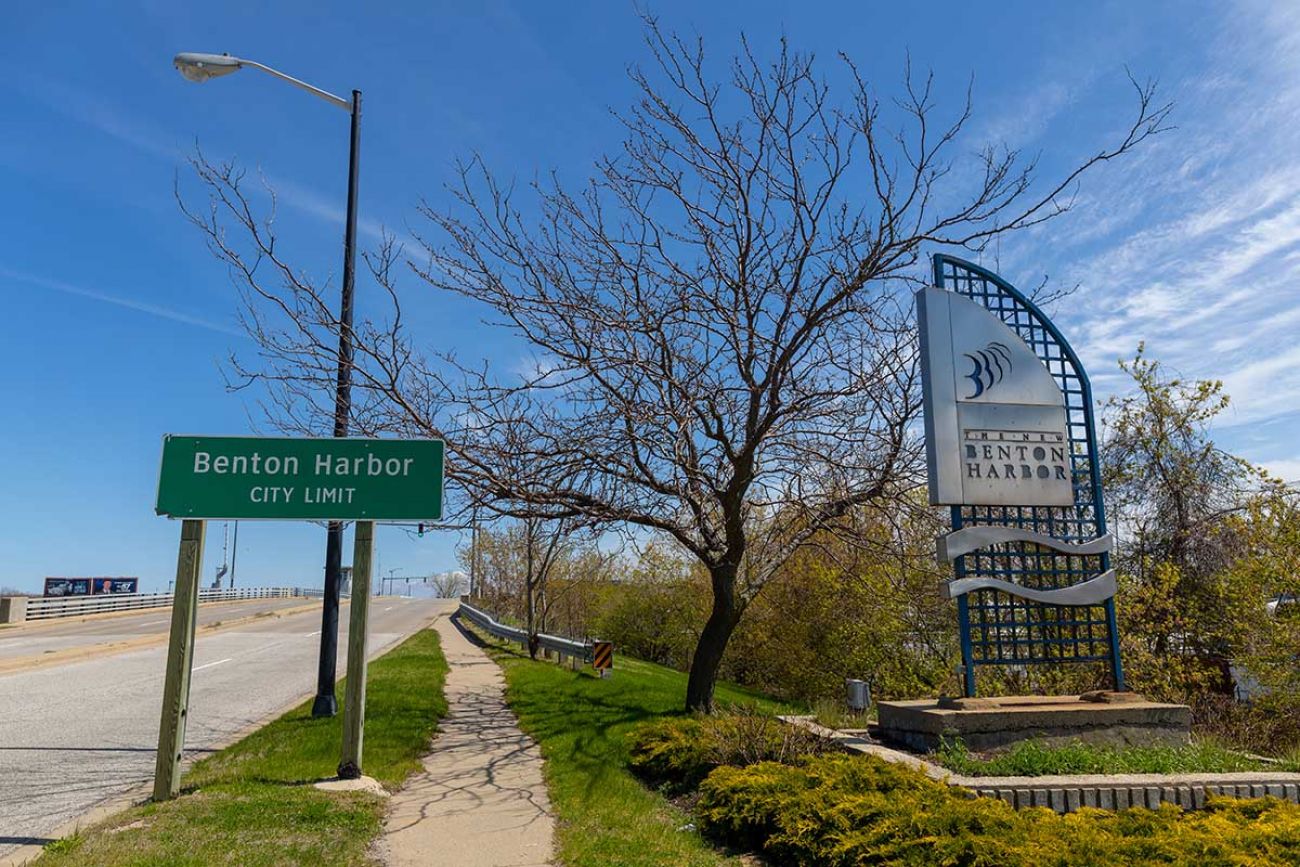Amid lead crisis, EPA orders Benton Harbor to fix water quality violations

Federal environmental regulators have flagged Benton Harbor’s water system for a host of problems, from inadequate water treatment to a failure to adequately notify residents about high lead levels that have plagued the water system for at least three years.
In an order Tuesday, officials with the U.S. Environmental Protection Agency told Benton Harbor it must fix a range of Safe Drinking Water Act “violations and deficiencies” identified during a September inspection.
State regulators, who also put Benton Harbor on notice Tuesday for a host of water system deficiencies, acknowledged that funding shortages are the root cause and pledged to help the city find money to fix the problems.
Related:
- Check this Michigan map for childhood lead levels in your community
- Why are so many Michigan water systems finding lead? They're looking harder
- ‘What changed?’ Lawmakers press Whitmer admin on Benton Harbor’s water
Among myriad problems raised in the EPA order:
- The city failed to send all required notifications to residents, local public health officials, pediatricians, adult care facilities and other contacts about the high lead levels that began cropping up in water tests in 2018.
- Equipment used to monitor and maintain water quality is failing.
- Water managers can’t prove that the system provides “adequate disinfection” to keep water clean.
A separate violation notice from the Michigan Department of Environment, Great Lakes and Energy outlines even more problems, from chemicals and water pooling on the water plant’s floor to failing filters at the plant and, at the root of it all, too few staff and too little money to keep the city’s aging water system functioning.
The Tuesday notices from both agencies direct Benton Harbor to correct the problems, including an order from EPA for the city to improve its corrosion control to keep lead from leaching out of pipes, and better notify residents of lead threats.
In a statement, EPA Administrator Micheal S. Regan called the federal order “a critical next step to ensure that drinking water is safe and reliable.”
“The water infrastructure in Benton Harbor, like many cities across the country, needs upgrades and investments to build resiliency and protect people from lead,” Regan said.
The state and federal actions follow a September petition from local activists and environmental groups, who urged federal regulators to get involved in Benton Harbor after three straight years of water tests showed elevated lead levels in some residents’ taps.
Activists complained that local and state officials were not moving fast enough to fix the problem, and had not done enough to make sure Benton Harbor residents were aware of the problem and able to access safe water.
In addition to requiring the water system to correct those issues, the EPA order directs Benton Harbor to hire an outside firm to “analyze options for long-term operations and maintenance of the city’s water system,” including possible consolidation with nearby water systems.
An EPA release said the agency has offered a “compliance advisor” with the expertise to assist the city with making the ordered changes.
Regulators have known for years about many of the issues flagged Tuesday. Following a 2018 inspection, EGLE officials flagged a host of deficiencies at the plant and directed the city to raise water rates to fund fixes.
Maintenance of the water system had been falling behind for years amid a struggle to generate enough revenue from ratepayers in the shrinking, high-poverty city. That imbalance was made worse when neighboring communities broke off of Benton Harbor’s water system to get their water elsewhere, leaving fewer customers to split the cost maintaining an old system that had been designed to serve a far bigger population.
A state-appointed emergency manager who formerly ran the city cut costs by firing staff at the treatment plant, something Benton Harbor Mayor Marcus Muhammad blamed as part of the reason for the plant’s decline.
Unlike that past approach, regulators are now acknowledging that Benton Harbor needs financial help to fix the problems.
EGLE Director Liesl Clark noted that the orders aren’t meant to be “punitive,” but rather “a transparent way of identifying the pressing needs of the Benton Harbor community so that federal, state, local and community partners can work together to prioritize them.”
Water activists who petitioned the EPA to get involved in Benton Harbor heralded Tuesday’s order as a win.
The order is “exactly what is needed to begin addressing Benton Harbor’s long-term water problems,” said Cyndi Roper, a senior Michigan advocate with the Natural Resources Defense Council.
“The bottom line is, there have been decades of disinvestment that have left residents of Benton Harbor with a grossly inadequate water system,” Roper said.
In the weeks since a host of local and national groups petitioned the EPA, Michigan regulators have dramatically ramped up their response in Benton Harbor, including offering up free bottled water and advising residents not to drink even filtered tap water until the EPA conducts a study to make sure filters are effective at stripping away lead from Benton Harbor’s water.
And following years of little progress toward removing Benton Harbor’s lead pipes, state lawmakers and Gov. Gretchen Whitmer last month reached an agreement to dedicate $10 million toward the project.
Whitmer, vowing to get the city’s thousands of lead lines out of the ground by spring of 2023, has called upon the legislature to offer up another $11.4 million to fully fund the roughly $30 million project.
Benton Harbor Mayor Marcus Muhammad could not be reached for comment Tuesday afternoon.
In a statement, U.S. Rep. Debbie Dingell applauded the EPA order, calling it “a critical step to protecting Benton Harbor residents.”
Michigan Environment Watch
Michigan Environment Watch examines how public policy, industry, and other factors interact with the state’s trove of natural resources.
- See full coverage
- Subscribe
- Share tips and questions with Bridge environment reporter Kelly House
Michigan Environment Watch is made possible by generous financial support from:
Our generous Environment Watch underwriters encourage Bridge Michigan readers to also support civic journalism by becoming Bridge members. Please consider joining today.
See what new members are saying about why they donated to Bridge Michigan:
- “In order for this information to be accurate and unbiased it must be underwritten by its readers, not by special interests.” - Larry S.
- “Not many other media sources report on the topics Bridge does.” - Susan B.
- “Your journalism is outstanding and rare these days.” - Mark S.
If you want to ensure the future of nonpartisan, nonprofit Michigan journalism, please become a member today. You, too, will be asked why you donated and maybe we'll feature your quote next time!






